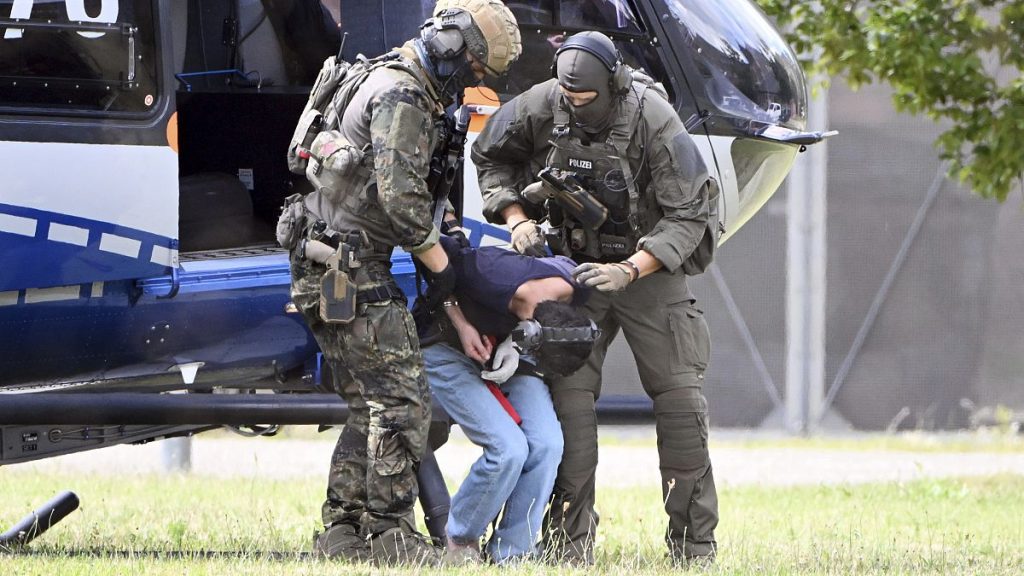The recent string of stabbings in Solingen, Germany has raised alarm among politicians and residents alike. On Friday night, a 26-year-old Syrian man named Issa Al H. carried out multiple stabbings that resulted in three deaths and eight serious injuries. He was arrested on Saturday night and appeared in court on Sunday, where he was remanded in custody for suspicion of murder and affiliation with ISIS. The terrorist group claimed responsibility for the attack online, citing revenge for Muslims in Palestine. The suspect had reportedly had his asylum claim denied and was supposed to be deported last year, indicating potential security failures in the system.
Al H.’s arrest has brought some relief to the residents of Solingen, who are still grappling with the shock of the attack. People are struggling to understand the motivations behind such violence and fear for their safety in the wake of the incident. The community came together for a memorial service to honor the victims, with some expressing concern that far-right groups may use the tragedy to incite hatred towards migrants. City officials emphasize the need to address the root causes of violence and discrimination, highlighting the importance of unity and tolerance in the face of adversity.
In response to the stabbings and ISIS’s claim of responsibility, politicians are calling for increased security measures, stricter gun control laws, harsher penalties for violent crimes, and tighter restrictions on immigration. The attack took place on a central square during the ‘Festival of Diversity’, an event celebrating the city’s 650th anniversary. The festival was abruptly canceled following the violent incident, further underscoring the impact of the tragedy on the community. As authorities investigate the suspect’s possible links to extremist groups, questions remain about the failures in the asylum system that allowed him to remain in the country despite having his claim denied.
The case of Issa Al H. highlights the complex challenges faced by European countries in balancing security concerns with humanitarian values. The incident has reignited debates over immigration policies, integration efforts, and terrorism prevention strategies. As Germany grapples with the aftermath of the stabbings in Solingen, there is a growing sense of urgency to address the underlying issues that contribute to radicalization and violence. The community’s resilience and solidarity in the face of tragedy serve as a reminder of the strength and unity that can emerge in times of crisis. As the investigation continues and the nation mourns the lives lost in the attack, there is a shared determination to prevent such atrocities from happening again.


